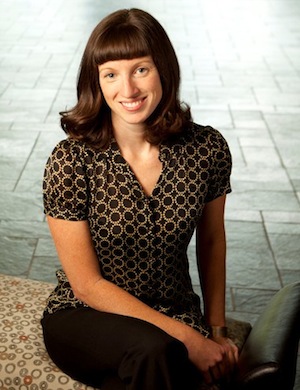Say a big antitrust court case hinges on whether the earth is round or flat. Expert testimony from scientists will be key, leading to the familiar scenario of “dueling experts” contradicting each other in the courtroom.
No-brainer, right? The attorney on the side of the earth being round is going to win.
Believe it or not, that’s not necessarily true. The court system, as it stands, conspires to give the flat-earth side a better chance than it deserves. What could happen is this: One of 99 out of 100 available experts testifies that the earth is round, and the one out of 100 who disagrees testifies that the earth is flat. To jurors, it appears that scientific consensus on the subject is divided roughly 50-50.

“It’s called the 99-1 problem,” says Rebecca Haw, assistant professor of law at Vanderbilt Law School. “The problem with the adversarial system of law is we don’t do a comprehensive look at scientific issues. We don’t even do a random sample.”
So, even if there’s 99 experts who will say the world is round, if the other side can find just one to say the opposite, the real scientific consensus on the issue might not get through to jurors.
“In the context of litigation, small, marginal disagreements can be made to seem important and settled issues can be made to appear hopelessly deadlocked,” Haw writes in the paper, “Adversarial Economics in Antitrust Litigation: Losing Academic Consensus in the Battle of the Experts.” It will be published in a forthcoming issue of the Northwestern University Law Review.
Haw, an expert on antitrust law and the intersection of science and the law, gives two suggestions in the article on how to address this issue.
“The first is a pretty modest idea – just to encourage or require testimony on the status of consensus within the scientific community,” she said. “This could be helped by some systematic analysis of opinion on various scientific or social scientific issues.”
Haw’s second suggestion would be a more substantive change in trial procedure. She believes a “peremptory strike” system – the same as used for jurors – might be useful for expert witnesses.
“The experts that are the most damaging to any one side wouldn’t be used,” Haw said. “Sometimes those would be the best experts,” she admits. “But if you can call any of 99 experts who will say virtually the same thing, then you just go down the list,” she said. “But if you have only one expert in the first place, you might not bring the case to court if you knew that a peremptory strike might wipe out your best witness.”
Scientific consensus tends to shift over time, so there would be cases under Haw’s system where an “outlier” expert who is actually right might find themselves forbidden to testify.
“Scientific consensus, while wrong sometimes, is the best thing we’ve got,” Haw said. “We need to be able to organize our affairs around what’s generally accepted to be true at any time, rather than try to hit a moving target of where we think science is going.”